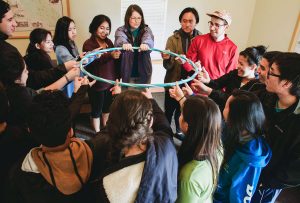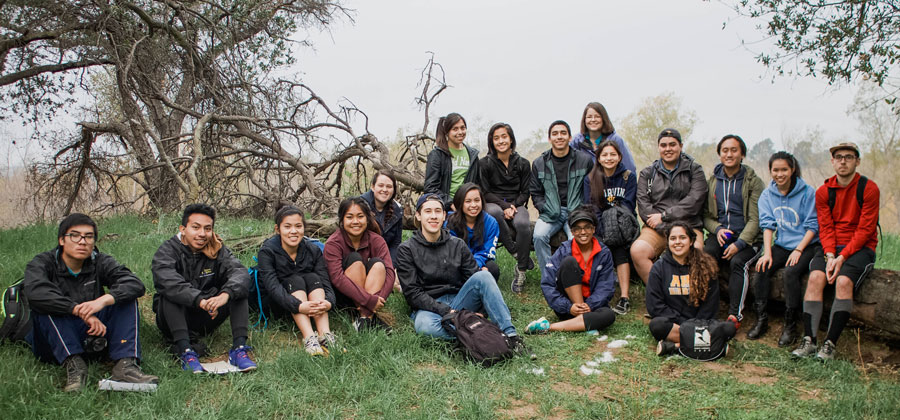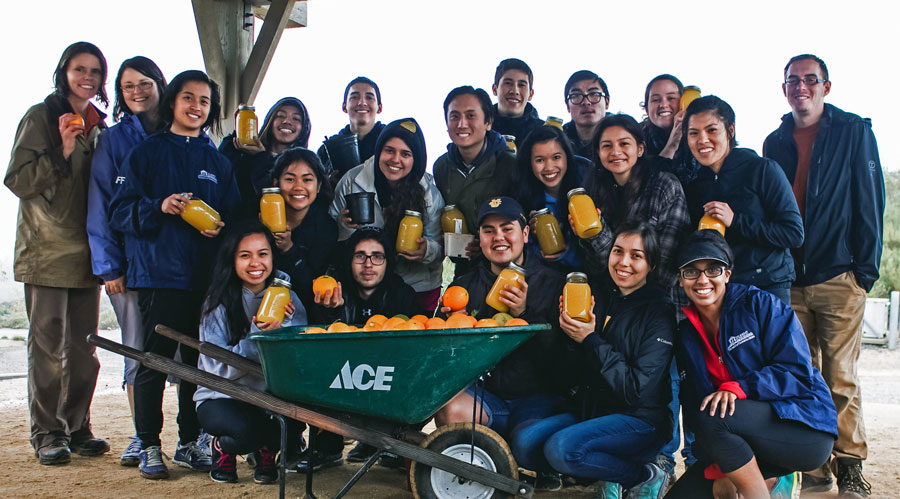As a supplement to this year’s Costa Rica Program schedule, the team spent the first weekend of Winter Quarter on a retreat that allowed us to practice sustainability, explore our strengths and weaknesses, learn to work as a team, and get to know one another on a deeper level.
Pre-retreat exploration of our strengths
Our weekend began Friday evening in the Campus Village Wellness Center. This was the beginning of a weekend filled with inner exploration and evaluation. We learned what each of our own strengths entailed, and learned how we could combine all of our strengths to maximize our team’s potential. Before we knew it, it was time to say goodbye and get some rest before our Saturday morning began.
We learned never to judge an orange by its peel

Our Saturday began bright and early at the Farmer’s Market a few streets down from campus. Students were treated to a short talk from Jimmy, an avocado farmer, about the importance of eating locally grown vegetables. He showed us the different kinds of avocados he grows, and taught us about the process and labor that goes into growing avocados. One of the most valuable lessons he taught us though had to do with the common misconception we all have regarding damaged-looking fruit. Jimmy brought out a case of bruised-looking oranges, peeled them, and showed us that despite their outward appearance, they were actually at the peak of perfection. Many of us admitted to being guilty of choosing our fruits based on their outward appearance but agreed Jimmy had made an impact on the way in which we’d choose our fruits and vegetables from now on.
Take only photos, leave only the lightest of ecological footprints
From the Farmer’s Market we headed to the Irvine Ranch Outdoor Education Center where we would stay for the remainder of the weekend. After unpacking and eating the lunch we’d prepared the night before, we headed out for a hike around the camp. This gave us the chance to talk to one another in smaller groups of two or three, and gave us the opportunity to ask each other questions that we hadn’t had the chance to ask before. They were questions about our hometowns, pets, high schools, major, and life aspirations. Halfway though our hike we stopped in an open area to talk about carbon footprints and how monitoring our actions could help us lessen the impact we have on our environment. To show participants just how much their activities contribute to their overall carbon footprint, we all took an individual ecological footprint calculator quiz. For some participants this was the first time they’d ever measured their footprint. It was an eye-opening experience for both them and every one else that had taken one before. The thing about these types of measurements though, despite their lack of perfect accuracy, is that they should be used as learning tools. We need to think of our footprint as an indicator of where we stand, and how we can aim to improve our score.
Building our team to be greater than the sum of its parts

The rest of night and weekend consisted of group bonding exercises where participants were asked to be vulnerable and allow the rest of the team to get to know them on a deeper level. We strived to grow the bonds between the team members, to show them there would always be someone on the team they could relate to, count on, and open up to. Retreat allowed us to do the first part of growing as a team, to identify how we could utilize each other to succeed, and to learn about sustainability by implementing practices, instead of simply reading or talking about ways in which we could improve ourselves.
If you’re interested in finding out what your ecological footprint is, take the Ecological Footprint Quiz.


